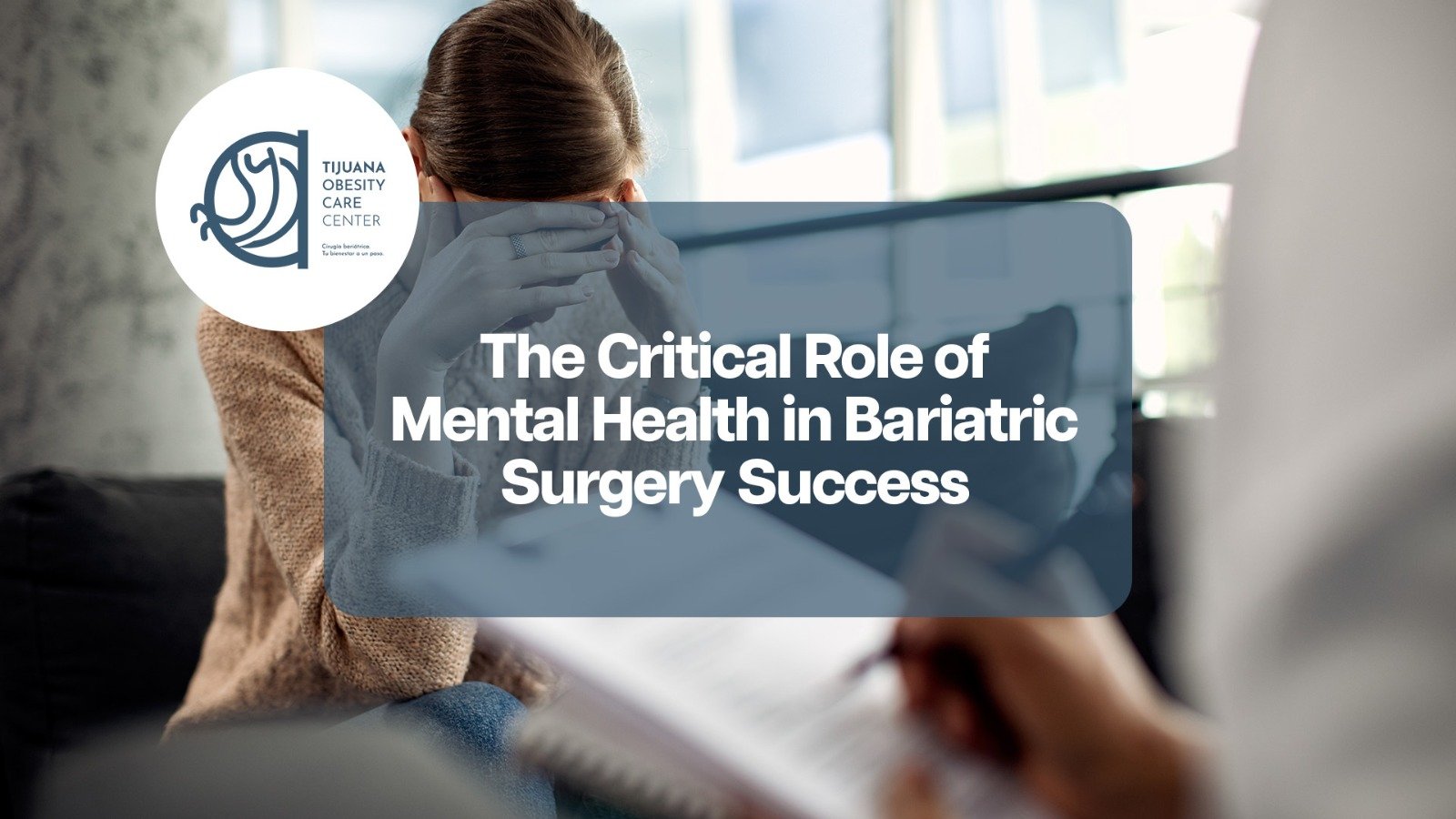When considering weight loss surgery in Mexico or anywhere else, many focus primarily on the physical aspects of the procedure. However, at Tijuana Obesity Care Center, we understand that mental health plays an equally crucial role in determining long-term success after bariatric surgery. The journey to sustainable weight loss involves not just changing your body, but also transforming your mindset and emotional relationship with food.
Understanding the Mental Health Connection
The relationship between mental health and weight loss surgery success runs deeper than many realize. Your emotional well-being influences everything from pre-surgical preparation to long-term maintenance of weight loss goals. Research consistently shows that patients who address their mental health needs throughout their weight loss journey achieve better outcomes after procedures like gastric sleeve surgery or gastric bypass.
Pre-Surgery Mental Health Considerations
Before any bariatric procedure at our obesity control center in Tijuana Mexico, we conduct thorough psychological evaluations. This assessment isn’t meant to discourage anyone from surgery; rather, it helps identify potential challenges and develop strategies for success. We look at various aspects of mental health, including emotional eating patterns, stress management techniques, and overall psychological readiness for the significant life changes ahead.
Many patients decide on weight loss surgery after years of struggling with their weight, often carrying emotional scars from past experiences. Understanding and addressing these underlying psychological factors becomes crucial for long-term success. Some patients may have used food as a coping mechanism for stress, anxiety, or depression – patterns that need to be recognized and addressed before surgery.
The Impact of Depression and Anxiety
Depression and anxiety often intertwine with obesity in complex ways. Some individuals may experience these conditions as a result of their weight struggles, while others might have gained weight partly due to these mental health challenges. Our bariatric surgeons in Mexico recognize that addressing these conditions is essential for optimal surgical outcomes.
Treatment for depression or anxiety before surgery doesn’t automatically disqualify you from being a candidate. Instead, it demonstrates your commitment to comprehensive health improvement. Working with mental health professionals can help develop healthy coping mechanisms that don’t revolve around food, setting the stage for post-surgical success.
Emotional Eating and Behavioral Change
One of the most significant challenges many patients face involves transforming their relationship with food. Emotional eating requires particular attention and using food to cope with feelings rather than physical hunger. At our Tijuana bariatric center, we help patients identify emotional eating triggers and develop alternative coping strategies before surgery.
This process involves distinguishing between physical and emotional hunger, developing new stress management techniques, and building a healthier relationship with food. These skills become crucial after weight loss surgery when the physical tool of restricted eating must work in harmony with new behavioral patterns.
Building a Strong Support System
Mental health support extends beyond individual therapy. A robust support system plays a vital role in long-term success after procedures like mini-bypass surgery or traditional gastric bypass. This network might include:
Family and friends who understand your journey and support your new lifestyle become invaluable allies. Professional support groups offer spaces to share experiences with others who truly understand your challenges. Our Mexican weight loss specialists facilitate connections with support resources both before and after surgery.
Managing Expectations and Body Image
As the weight begins to fall away after bariatric surgery, many patients face unexpected emotional challenges. Your mind might take time to adjust to your changing body image. Some patients experience a phenomenon known as “phantom fat,” where they continue to see themselves as their pre-surgery size despite significant weight loss.
Working with mental health professionals helps develop realistic expectations and healthy ways to cope with these changes. It’s important to understand that physical transformation often occurs more quickly than psychological adaptation.
The Role of Mindfulness and Stress Management
Developing mindfulness practices and stress management techniques become crucial for long-term success. These skills help patients maintain awareness of their eating habits, manage emotional triggers, and make conscious choices about their health. Our comprehensive approach at Tijuana Obesity Care Center includes guidance on incorporating these practices into daily life.
Long-Term Mental Health Support
The need for mental health support doesn’t end after surgery. In fact, the months and years following your procedure often present new psychological challenges. Regular check-ins with mental health professionals can help address these challenges as they arise, preventing potential setbacks in your weight loss journey.
Identifying Warning Signs
Understanding when to seek additional mental health support becomes crucial for maintaining long-term success. We educate patients about potential warning signs that might indicate the need for additional support, such as: Changes in emotional eating patterns Feelings of overwhelm or anxiety about lifestyle changes Depression or mood swings Difficulty adapting to your new body image
Your Partner in Comprehensive Care!
At Tijuana Obesity Care Center, we believe in treating the whole person, not just performing weight loss surgery. Our integrated approach ensures that mental health support remains accessible throughout your journey, from initial consultation through long-term follow-up care.
*Disclaimer: Mental health support should be personalized to each individual’s needs. Always consult with qualified healthcare providers to determine the most appropriate care plan for your situation.
Author
-

Dr. Victor Cabrera, a cardiovascular anesthesiologist at Tijuana Obesity Care Center, plays a key role in ensuring the success of the center’s bariatric surgeries. With over a decade of experience, he has helped numerous patients achieve life-changing weight loss through safe and effective procedures. His expertise in cardiovascular anesthesiology, honed at prestigious institutions like the Texas Heart Institute, allows him to provide top-tier care during bariatric surgeries. Dr. Cabrera is dedicated to upholding the highest standards in patient safety, making Tijuana Obesity Care Center a trusted destination for weight loss surgery.
View all posts


